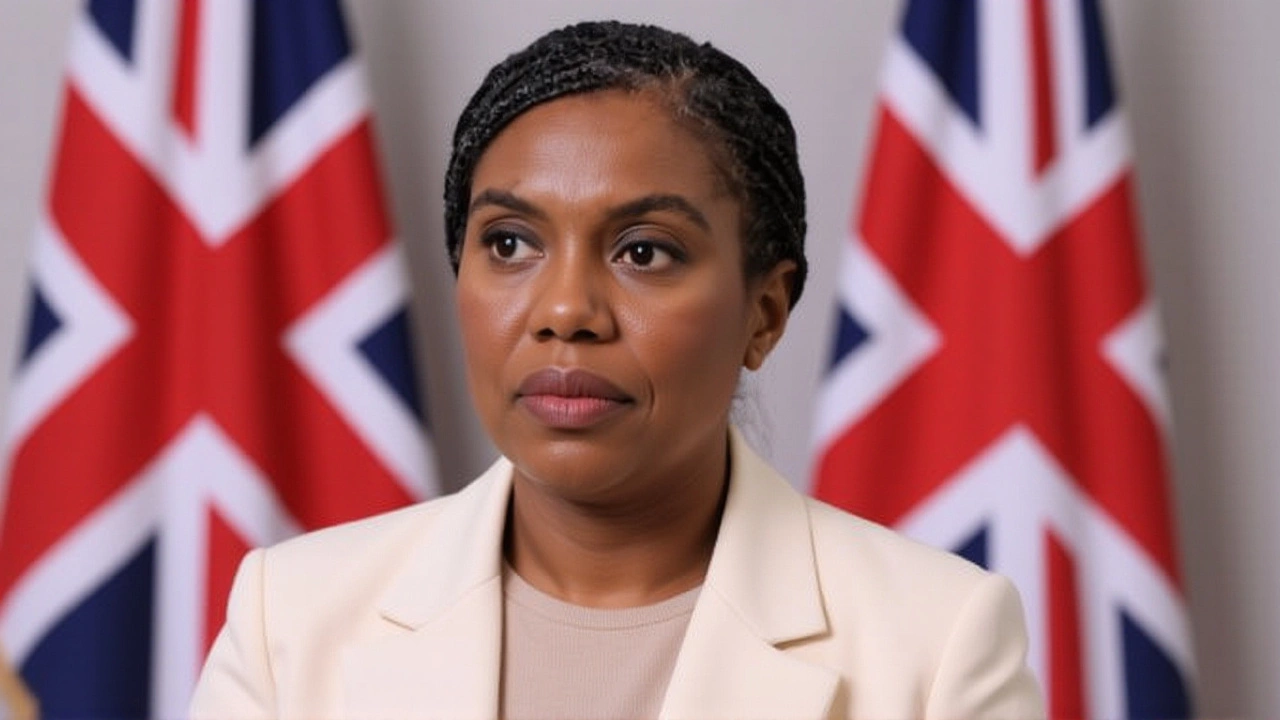
When Kemi Badenoch, Leader of the Conservative Party Conservative Party steps up to the podium at the party conference on , she will signal a dramatic shift: the Conservatives will withdraw from the European Convention on Human Rights (ECHR) if they win the next general election. The move follows a June‑2025 review commissioned by Badenoch and led by Lord Wolfson, a distinguished King’s Counsel. Legal experts warn the decision won’t be a cure‑all, but it underscores the growing pressure on UK parties to adopt tougher immigration stances.
Why the ECHR Is Back on the Political Agenda
The debate isn’t new. For years, critics have argued that the ECHR hampers the government’s ability to control borders and enforce immigration law. Lord Wolfson’s report warned that “legal challenges using the ECHR could provide debilitating obstacles to potential government policy.” Yet he also cautioned that pulling out “will not be a panacea to all the issues that have arisen in recent years.”
The Conservative push aligns them with Reform UK, which announced on that leaving the ECHR would be its "day‑one priority" if it wins power. Nigel Farage, Leader of Reform UK and Zia Yusuf, Head of Policy at Reform UK unveiled a plan that would immediately detain all undocumented migrants in newly built military sites pending forced removal.
Public Sentiment and Parliamentary Pressure
A petition on the UK Parliament’s website calling for ECHR withdrawal has attracted 18,208 signatures so far – short of the 100,000 threshold needed for a formal debate but still a signal of rising public frustration over the asylum system. The government responded on , urging a review of how the convention is interpreted rather than a full exit.
Human rights advocates are alarmed. Humanists UK, representing over 150,000 members, has launched a campaign against the proposals. Richy Thompson, Director of Public Affairs and Policy at Humanists UK, warned that “withdrawal would represent an unprecedented attack on human‑rights protections in the UK and put the rights of everyone at risk.”
Reaction Inside Westminster
Labour has seized on the issue to criticize the Conservatives. A senior Labour spokesperson dismissed Badenoch’s plan as “a sign of weakness, not leadership.” Within the governing party, the debate has turned into a litmus test for ideological purity. Robert Jenrick, Shadow Justice Secretary for the Labour Party has urged Conservative parliamentary candidates to either commit to leaving the ECHR or stand down.
Legal scholars stress that a clean break from the ECHR would also mean exiting the Council of Europe under Article 7 of its Statute – there’s no way to stay in one and leave the other. History offers only two precedents: Greece, which withdrew during its 1970s military junta and re‑joined in 1974, and Russia, which remains outside the Council.
What an ECHR Exit Could Mean for the UK
Should the Conservatives follow through, the Human Rights Act would be gutted, stripping public authorities of the duty to act compatibly with Convention rights. UK courts would no longer have to consider judgments from the European Court of Human Rights. In practice, that could pave the way for stricter immigration controls, broader police powers, and a legal environment where cases involving Articles 3 (prohibition of torture) and 8 (right to private and family life) become harder to win.
Critics argue that such a step would isolate the UK diplomatically, potentially jeopardising cooperation on issues ranging from cross‑border crime to refugee resettlement. Supporters claim it restores parliamentary sovereignty and removes “foreign judges” from domestic policy.

Looking Ahead: Election Timing and Policy Roadmaps
The next general election is slated for May 2026, giving the Conservatives roughly eight months to flesh out the legislative mechanics of an ECHR exit. Lord Wolfson’s review recommends a phased approach: first amending the Human Rights Act, then negotiating a withdrawal agreement with the Council of Europe, and finally enacting replacement legislation to protect vulnerable groups.
Reform UK says it will move faster, proposing an immediate suspension of the Refugee Convention and the UN Convention Against Torture – a stance that has drawn condemnation from international law experts who warn of possible breaches of the UK’s obligations under other treaties.
Key Facts
- Leader Kemi Badenoch to announce ECHR withdrawal plan on 5 Oct 2025.
- Review commissioned June 2025, led by Lord Wolfson KC.
- Reform UK mirrors the policy; Nigel Farage and Zia Yusuf outline detention strategy.
- Parliamentary petition: 18,208 signatures (target 100,000).
- Humanists UK, led by Richy Thompson, warns of “unprecedented attack” on rights.
Frequently Asked Questions
How would leaving the ECHR affect asylum seekers in the UK?
Without the ECHR, UK courts would no longer be bound by European Court judgments that currently protect asylum seekers from deportation where they face a real risk of torture (Article 3) or where removal would breach family life (Article 8). This could speed up removals, but also raises the risk of unlawful expulsions and international criticism.
What would happen to the Human Rights Act if the Conservatives withdraw from the ECHR?
The Human Rights Act would likely be repealed or radically rewritten, meaning public bodies would no longer have a statutory duty to act in line with Convention rights. Parliament would need to introduce new domestic safeguards, though critics doubt they would match the breadth of the current framework.
Is there any historical precedent for a country leaving the ECHR and the Council of Europe?
Only two nations have done it: Greece temporarily withdrew during its 1973‑74 military regime and re‑joined once democracy returned; Russia left permanently in 2022 after the Ukraine invasion. Both cases were politically charged and had major diplomatic fallout.
What are the main arguments from Humanists UK against the proposed withdrawal?
Humanists UK contends that the ECHR acts as a vital check on state power, safeguarding civil liberties for all citizens, including minorities. Richy Thompson argues that abandoning it would erode the rule of law, expose vulnerable groups to abuse, and damage the UK’s standing as a champion of human rights.
How likely is it that the Conservatives will keep this promise after winning the election?
Political analysts say the pledge is a high‑stakes gambit. If the party wins, internal dissent could surface, especially from MPs representing constituencies with strong human‑rights advocacy. The actual withdrawal would also require complex legal steps and could trigger court challenges, making implementation uncertain.